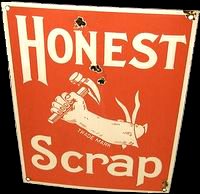If you’re under 35 and you watch the video of Steve Jobs introducing the first Macintosh, in January 1984, you might wonder: what’s with all the cheering, it doesn’t do much. But it was revolutionary for its time.
Before that, you talked to computers by typing arcane commands. Text was displayed all in one font, and if you were lucky, the font had descenders (the stalks on the g, p, and q actually went below the bottom of the other letters)–so you could even read it. If you weren’t lucky, it was a squiggly mess. My first laptop was like that (a Radio Shack Model 100, which I bought in 1986). Graphics? You want graphics? They were sooo primitive, and not easy for the casual user to generate. To do that detailed MacPaint picture of a Japanese woman that Jobs shows on an early IBM PC or an Apple II would have been pretty much impossible.
The Mac, from day 1, allowed multiple fonts, bold and italic (and other less useful effects) with a simple click, included a graphics program that anyone could use, and even had sound.
I had one of those early Macs: my first computer, which I bought in April, 1984. It had 124K (not meg, and certainly not gig) of RAM, 64K of ROM, and a single 400K floppy drive. The startup disk included the operating system, a word processor, paint program, and a bit of room for data files. There was no hard drive, and backing up those data files was a major PITA involving multiple disk swaps. Oh yes, and a 9-inch monochrome monitor; color Macs didn’t come along for quite a while. I bought a second floppy drive for $400, and about a year later, a 20 MB hard drive for $700. Now you can get several gigabytes on a thumb drive and pay $40.
And before personal computers, computing was reserved for the specially trained, who talked to their machines by laboriously keypunching a line of code at a time, starting over if they made an error. Processors were in a central location, and you used a terminal to talk to them–a terminal with almost no computing power of its own.
So first, PCs swung the culture away from those centralized computers, to having power on your own desk. But then the Internet reversed the trend. Once again, a lot of our processing is done someplace else. Which means everyone’s personal comptuers have access to enormous resources: the world’s knowledge available in seconds.
And the Internet as a commerce platform means we can shop, pay bills, raise and contribute funds for causes, manage databases far away from the comfort of our own home, or from any far-flung corner of the world
And among the many other things the Internet changed is our definition of community. We’ve completely separated community from geography.
For social change and environmental justice activists, the possibilities are enormous. Especially considering we’re probably at the Model T stage. The Internet as a commercial venture is only 13 years old; the Mac, 25 years old; personal computing, about 30 years old. The practical gas-powered automobile was created in 1886; Ford introduced the Model T (not his first car, by the way; he had at least three earlier models, starting in 1903) 22 years later. Just as no one could have predicted the enormous impact the automobile has had on society, so, no one can predict just how far the Internet will stretch.
Building on the Howard Dean campaign of 2004 (the first to make a serious attempt at harnessing the Internet), Obama’s presidential campaign was greatly helped by his use not only of e-mail and the Web, but of social networks like Facebook and Twitter. And by groups like MoveOn and True Majority, that were able to organize their members to support and fund the campaign, while focusing attention on a progressive agenda.
And of course, the countless blogs, e-zines, websites, and radio programs on the Net, from around the world, are an easy alternative to mainstream corporate-owned media that can no longer tightly control the news–at least not for those willing to be a bit adventurous with their web searches. That, too, is revolutionary.
The future promises to be quite exciting.





